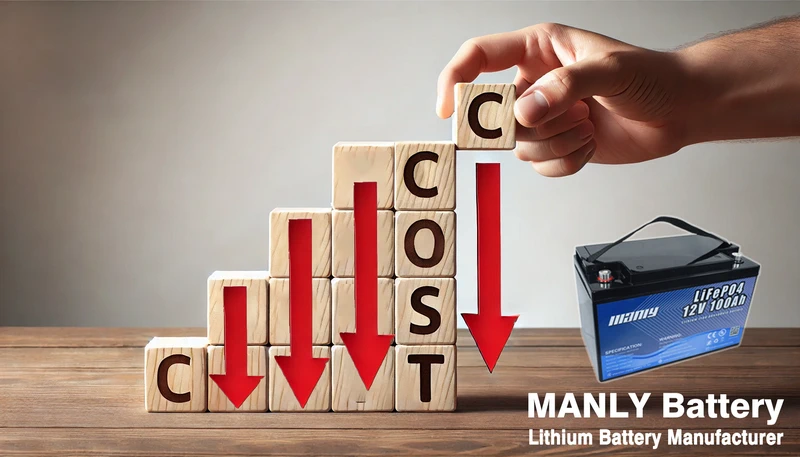2024 How to Purchase Directly From Manufacturer
Table of Contents
- 2024 How to Purchase Directly From Manufacturer
- Understanding Direct Purchasing
- How to Navigate Direct Purchase From Manufacturer Online
- Essential Steps for Direct Purchase From Manufacturer Offline
- Key Advantages of Choosing Direct Purchase From Manufacturer
- How to Overcome Challenges in Direct Purchase From Manufacturer
- Tips for Finding the Right Manufacturer
- Conclusion
- FAQ
- Hot Search
- Learn More About Battery
Purchasing directly from manufacturers has become an increasingly popular strategy for businesses looking to cut costs, improve quality control, and customize products to meet unique requirements. This approach eliminates intermediaries, allowing companies to establish stronger relationships with suppliers and gain better oversight of the production process.
In this guide, we’ll explore the benefits of buying directly from manufacturers, address the potential challenges, and provide actionable strategies to help you streamline your sourcing process. Whether you’re a small business or a large enterprise, understanding the nuances of direct purchasing can help you optimize costs and achieve long-term success in a competitive market.
Understanding Direct Purchasing
What is Direct Purchasing?
Direct purchasing means buying products directly from the manufacturer, bypassing retailers and distributors. This approach often reduces costs and improves quality control by allowing buyers to communicate and negotiate directly with the manufacturer.
Overview of Direct Purchasing
Direct purchasing is a strategy where buyers source goods directly from the manufacturer, eliminating middlemen like wholesalers or retailers. This method is particularly effective for businesses looking to minimize costs, streamline their supply chain, and ensure greater oversight of product quality. By establishing a direct line of communication, buyers can better align their requirements with the manufacturer’s capabilities.
Why Choose Direct Purchase?
Direct purchasing offers a range of advantages, including cost savings, better quality control, and opportunities for customization. Here’s why it’s worth considering:
1. Cost Savings
- Bypassing middlemen eliminates additional markups, leading to reduced costs.
- Bulk orders often come with discounts, making direct purchase from manufacturers ideal for businesses needing large quantities.
2. Enhanced Quality Control
- Reputable manufacturers perform stringent quality checks as part of their production process.
- Buyers can directly address concerns or issues with the manufacturer, avoiding delays caused by third-party intermediaries.
3. Customization Opportunities
- Direct purchase from manufacturers allows businesses to request customizations tailored to their needs, from product specifications to packaging.
- This flexibility can help businesses create unique products that stand out in competitive markets.
4. Stronger Communication and Relationships
- Establishing direct contact fosters trust and long-term partnerships.
- Buyers can negotiate better terms, ensuring mutual benefits over time.
Direct purchasing is an efficient and cost-effective strategy for businesses aiming to optimize their supply chain while maintaining strict control over quality and customization. It is particularly advantageous in industries where product standards and scalability are key to success.
Purchasing directly from manufacturers online can lead to significant cost savings and enhanced control over product quality. However, it requires a systematic approach to ensure successful transactions. Here’s a step-by-step guide to assist you:
Step 1: Research Manufacturers
Identifying legitimate manufacturers is essential to avoid scams and ensure high-quality products. Start by exploring reputable B2B platforms like Alibaba, Global Sources, and Made-in-China, which feature verified suppliers with authentication processes to ensure reliability.
In addition to B2B platforms, consider conducting a direct Google search for independent manufacturer websites. For instance, MANLY Battery, a renowned Chinese lithium battery manufacturer, has an independent website providing comprehensive product details, certifications, and contact information. Directly reaching out through such platforms allows you to engage in one-on-one communication with the manufacturer and verify their credibility.
Virtual trade shows and industry forums also serve as excellent resources for connecting with potential suppliers. These events provide opportunities to network, learn about market trends, and assess the reliability of various manufacturers in a structured setting.
By combining these research methods—using B2B platforms, exploring independent sites, and attending trade events—you can effectively identify and evaluate trustworthy manufacturers that align with your sourcing needs.
Step 2: Verify and Shortlist
Once you’ve identified potential manufacturers, it’s essential to verify their legitimacy. Request and examine their business licenses and registration numbers. For instance, legitimate Chinese businesses possess an 18-digit Unified Social Credit Code.
Cross-reference this information using official government databases or third-party verification services. Be cautious of red flags such as reluctance to provide documentation, inconsistent company information, or deals that seem too good to be true.
Step 3: Communicate with Suppliers
Initiate contact with manufacturers through professional inquiries. Clearly outline your requirements, including product specifications, order quantities, and any customization needs. Inquire about their production capabilities, Minimum Order Quantities (MOQs), lead times, and quality assurance processes. Effective communication helps establish trust and ensures that the manufacturer can meet your expectations.
Step 4: Negotiate Terms and Prices
Engage in negotiations to secure favorable terms. Discuss pricing structures, payment terms, delivery schedules, and warranty conditions. Aim to balance cost-effectiveness with product quality. Be wary of prices significantly lower than market rates, as they may indicate substandard products or potential scams.
Step 5: Place and Confirm Orders
After finalizing terms, proceed to place a formal purchase order. Ensure that all details are explicitly stated, including product descriptions, quantities, prices, payment terms, delivery dates, and any agreed-upon quality standards. Opt for secure payment methods that offer buyer protection, such as letters of credit or escrow services. Maintain open communication with the manufacturer throughout the production and shipping process to address any issues promptly.
By meticulously following these steps, you can effectively navigate the process of buying directly from manufacturers online, thereby optimizing your supply chain and ensuring product quality.
Essential Steps for Direct Purchase From Manufacturer Offline
Purchasing directly from manufacturers offline can lead to significant cost savings and enhanced product quality control. However, it requires a strategic approach to ensure successful transactions. Here’s a step-by-step guide to assist you:
Step 1: Attend Trade Shows
Attending major trade shows is an effective way to connect with manufacturers. Events like the Hong Kong Show and the International Manufacturing Technology Show (IMTS) in Chicago provide platforms to meet suppliers, view products firsthand, and establish direct relationships.
Step 2: Visit Manufacturers’ Facilities
Scheduling factory visits allows for thorough quality inspections and a deeper understanding of manufacturing processes. Prepare by familiarizing yourself with industry-specific standards and clearly defining the scope of the inspection. This preparation ensures that the visit is productive and aligns with your quality expectations.
Step 3: Work with Local Distributors
Collaborating with local distributors can facilitate connections with reputable manufacturers. Distributors often have established relationships and can provide insights into manufacturers’ reliability and product quality, serving as a bridge to direct purchasing opportunities.
Step 4: Build Networks
Leveraging connections with other businesses can offer valuable insights into manufacturers’ reputations and operational practices. Networking through industry associations, business forums, and professional networks can lead to recommendations and shared experiences, aiding in identifying trustworthy manufacturers.
By following these steps, you can effectively navigate the process of buying directly from manufacturers offline, optimizing your supply chain and ensuring product quality.
Key Advantages of Choosing Direct Purchase From Manufacturer
Purchasing directly from manufacturers offers several advantages that can significantly benefit your business operations and profitability.
Cost Savings
Bypassing intermediaries such as wholesalers and retailers allows you to purchase products at lower prices, directly from the source. This elimination of additional markups results in substantial cost reductions. For instance, buying directly from Chinese factories can lead to significant savings, as it removes the costs added by intermediaries.
Improved Quality Control
Engaging directly with manufacturers provides greater oversight of the production process, enabling you to ensure that products meet your specific quality standards. This direct relationship facilitates better communication and quicker resolution of any quality issues. Direct purchasing allows for more control over product quality and specifications, ensuring that the final product aligns with your expectations.
Faster Delivery Times
Streamlining the supply chain by eliminating middlemen can lead to quicker turnaround times for orders. Direct communication with manufacturers often results in more efficient production schedules and expedited shipping processes. This efficiency is particularly beneficial when sourcing products from regions like China, where manufacturers are known for their high output in less time.
Customization Options
Working directly with manufacturers allows for greater flexibility in customizing products to meet specific requirements, such as unique designs, materials, or branding elements. This level of customization is often not feasible when purchasing through intermediaries. Direct sourcing facilitates extensive customization options, enabling businesses to create products that align closely with their brand identity and customer preferences.
Stronger Relationships
Establishing direct contact fosters stronger, long-term partnerships with manufacturers. These relationships can lead to better pricing, priority treatment, and more reliable supply chains. Building trust and loyalty directly with manufacturers enhances collaboration and can result in more favorable terms and conditions.
In summary, buying directly from manufacturers can lead to significant cost savings, improved quality control, faster delivery times, enhanced customization options, and stronger business relationships. These advantages make direct purchasing a strategic choice for businesses aiming to optimize their operations and increase profitability.
How to Overcome Challenges in Direct Purchase From Manufacturer
While purchasing directly from manufacturers offers numerous benefits, it also presents specific challenges that businesses must navigate to ensure successful transactions.
Logistics Complexity
Managing international shipping and customs can be intricate when buying directly from manufacturers, especially those overseas. Navigating customs regulations, import duties, and shipping logistics requires thorough planning and understanding of international trade laws. Partnering with experienced freight forwarders or logistics providers can help mitigate these challenges.
Risk of Scams or Counterfeits
Sourcing products internationally carries the risk of encountering fraudulent suppliers or counterfeit goods. To mitigate these risks, conduct comprehensive due diligence by verifying supplier credentials, requesting product samples, and utilizing third-party inspection services. Platforms like Alibaba offer verification badges and buyer protection programs to assist in identifying reputable manufacturers.
High Initial Investment
Manufacturers often set a minimum order quantity (MOQ), requiring buyers to purchase large quantities upfront. This can lead to significant initial investments and potential overstocking. Understanding and negotiating MOQs is crucial to align with your business’s budget and inventory needs. For example, some suppliers may require an MOQ of 500 units per order, which can be a substantial commitment for small businesses.
Time-Consuming Process
The process of researching manufacturers, verifying their legitimacy, negotiating terms, and managing orders can be time-intensive. Balancing these tasks with daily business operations requires effective time management and, in some cases, the assistance of sourcing agents to streamline the process.
By acknowledging and proactively addressing these challenges, businesses can make informed decisions and develop strategies to effectively manage the complexities associated with direct purchasing from manufacturers.
Tips for Finding the Right Manufacturer
Choosing the right manufacturer is crucial for ensuring product quality, meeting business needs, and establishing reliable partnerships. Follow these strategies to find the perfect fit for your business.
Evaluate Credibility
Begin by verifying the manufacturer’s credibility through certifications and business licenses. Reliable manufacturers should have documentation proving their legitimacy and compliance with industry standards.
- Request copies of their certifications, such as ISO quality standards or government-issued licenses.
- Check whether the company is listed in reputable online directories or platforms like Alibaba and Global Sources, which often vet their suppliers.
- Conduct a background check by using third-party verification services or local authorities to confirm their registration details.
This step helps you avoid scams and ensures you work with trustworthy manufacturers.
Assess Production Capacity
Ensuring the manufacturer can meet your volume needs is essential for maintaining a steady supply chain.
- Ask about their production capacity and average lead times for orders.
- Request a factory visit or video tour to observe their facilities and gauge their ability to handle bulk production.
- Confirm their ability to scale production if your business grows.
Manufacturers with proven capacity and flexibility are better equipped to handle changing demands.
Review Customer Feedback
Use customer testimonials and case studies to evaluate the manufacturer’s reliability and product quality.
- Look for reviews on their website, online directories, or industry-specific forums.
- Ask the manufacturer for references from previous clients who can vouch for their work.
- Consider feedback on key aspects like delivery timelines, communication, and quality consistency.
Real-world experiences from other businesses can provide valuable insights and help you avoid potential pitfalls.
Plan for Long-Term Partnership
Establishing a solid relationship with a manufacturer ensures smoother operations and better collaboration over time.
- Start by negotiating mutually beneficial terms, such as pricing, payment schedules, and delivery conditions.
- Maintain open communication channels to address issues promptly and collaboratively.
- Consider offering incentives, such as long-term contracts, to build loyalty and prioritize your orders.
Building a strong partnership fosters trust and reliability, which are critical for sustained business success.
By following these tips, you can confidently identify and work with the right manufacturer to meet your business’s needs while ensuring quality, reliability, and efficiency.
Conclusion
Purchasing directly from manufacturers offers significant advantages, including cost savings, improved quality control, faster delivery, and the ability to customize products to meet specific needs. However, this approach also presents challenges, such as logistics complexity, the risk of scams or counterfeits, high initial investment requirements, and time-intensive processes.
By carefully evaluating potential manufacturers, verifying their credibility, and planning for long-term partnerships, businesses can effectively navigate these challenges. Leveraging strategies like attending trade shows, conducting factory visits, and reviewing customer feedback can further enhance your sourcing success.
Implementing these practices will not only help streamline your supply chain but also optimize costs and build stronger relationships with manufacturers. Whether you’re a small business or a large enterprise, applying these strategies can significantly enhance your sourcing efficiency and support your growth.
FAQ
1. Is it possible to buy directly from the manufacturer?
Yes, it is possible to buy directly from a manufacturer. This approach eliminates intermediaries such as wholesalers or retailers, allowing businesses and individuals to negotiate better prices, ensure quality control, and customize products to meet specific needs. Direct purchasing is often facilitated through trade shows, online platforms like Alibaba, or direct factory visits.
2. Who buys from a manufacturer?
Businesses such as wholesalers, retailers, and distributors are the primary buyers from manufacturers, as this enables them to reduce costs and secure bulk orders. Additionally, individual consumers and entrepreneurs often purchase directly when looking for custom products, lower prices, or unique items not available through regular retail channels.








